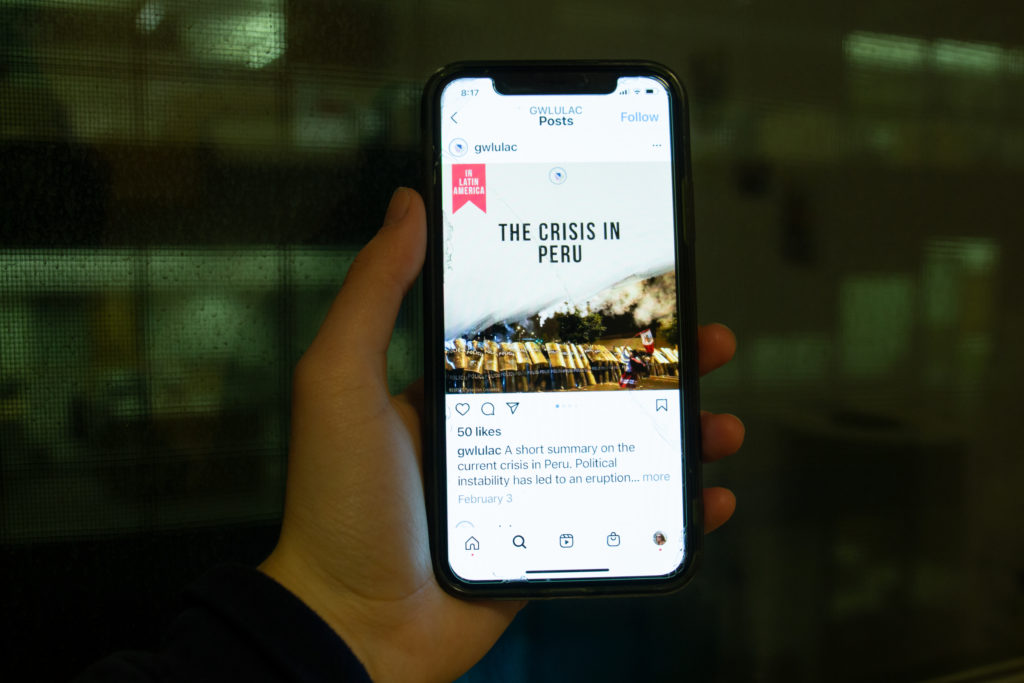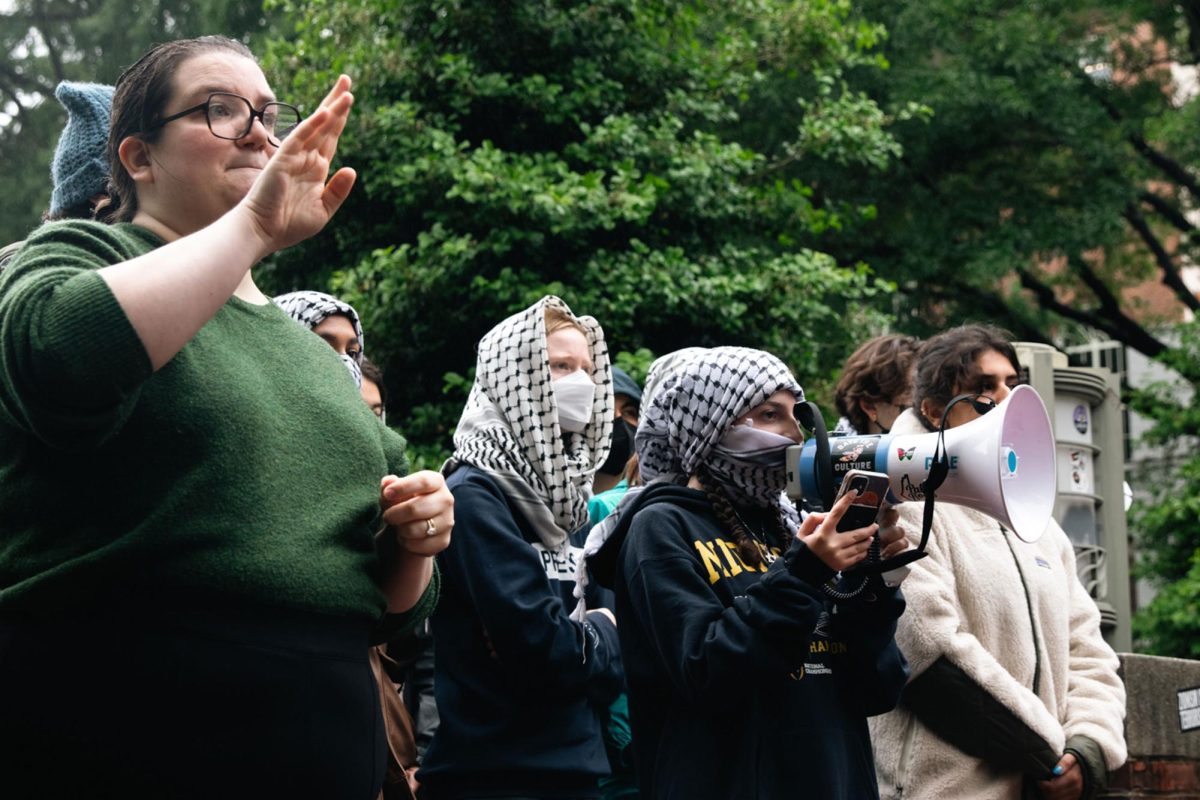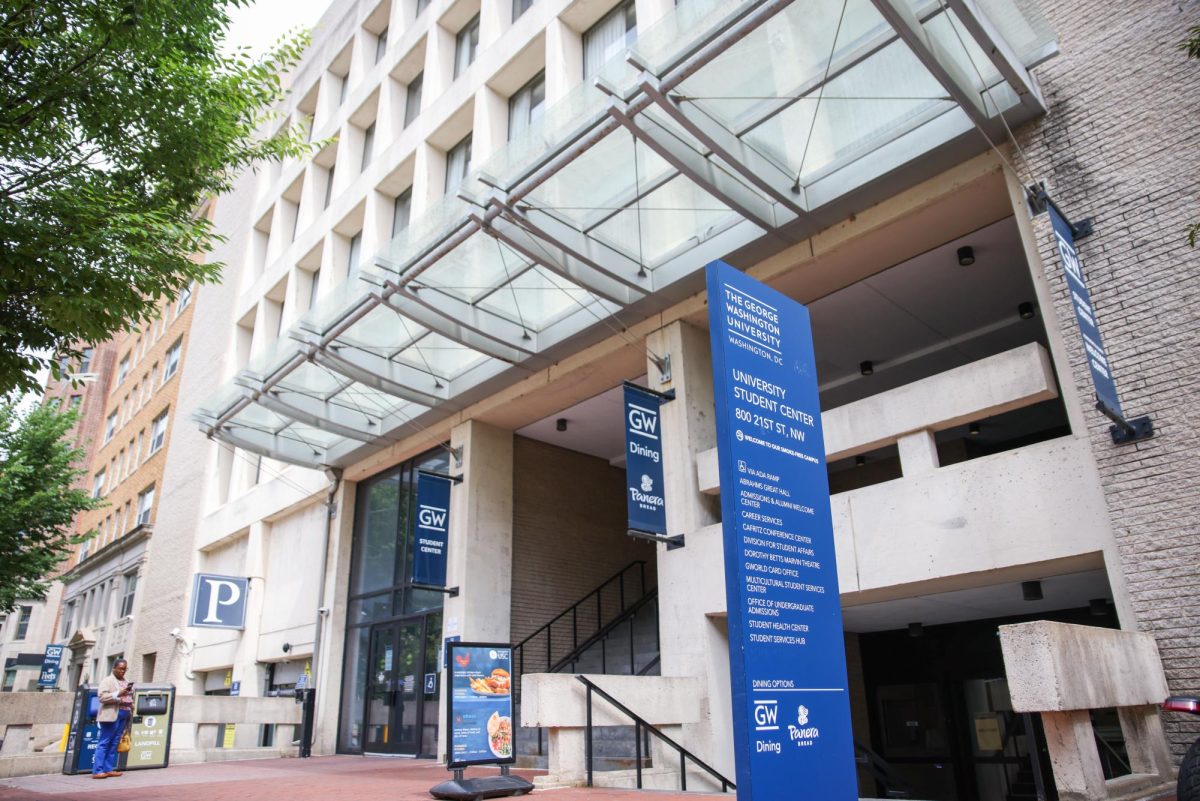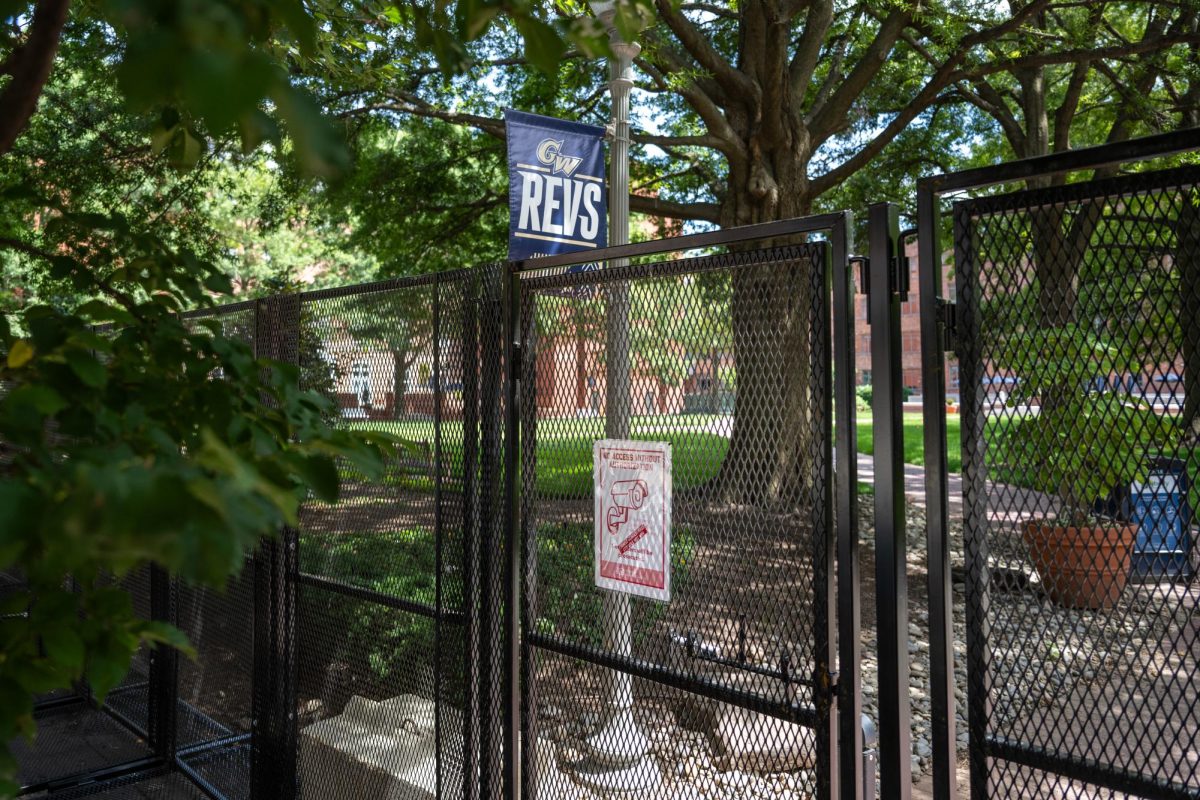When junior Julian Abeledo saw news of a violent police raid at San Marcos University in Lima, Peru in late January, he was reminded of his grandfather.
Police in 1966 assaulted and exiled Abeledo’s grandfather, a former professor at the University of Buenos Aires, during La Noche de los Bastones Largos, a police raid displacing students and professors who opposed the government’s revocation of academic freedom. More than 50 years later, Peruvian authorities detained more than 200 anti-government protesters at San Marcos University in the January raid, mirroring the turmoil Abeledo’s grandfather endured.
Drawing inspiration from his grandfather’s story, Abeledo is now leading efforts to mobilize GW students to support protesters who have confronted military forces in response to political turmoil in Peru. Peruvian President Pedro Castillo was impeached in December after he attempted to dissolve the country’s Congress, sparking civil unrest in the months since with more than 50 civilian deaths.
“Seeing that happen in Peru, I really felt it personally,” Abeledo said. “These people are going through the same types of things that we see happen tragically time and time again in the history of our continent.”
Student activists with the GW League of United Latin American Citizens and the GW Organization of Latin American Students said they’re leading fundraising efforts and hosting events to raise awareness about the crisis, aiming to spark political action among the GW community to donate and support Peruvian protesters’ fight for democratic freedom.
Abeledo – the director of outreach for GW’s chapter of the League of United Latin American Citizens – said the organization, in collaboration with the GW Organization of Latin American Students, assembled a student delegation of five to attend a vigil in front of the White House last Saturday for the victims of the Peruvian crisis.
Abeledo spoke at the vigil to a crowd of about 50, a majority of whom he said were members of the Peruvian diaspora, to express support for protesters resisting military force in Peru and call for the restoration of democratic freedom in the country.
“From GW LULAC, we want to express our total support and solidarity with Peruvian students who are in the streets and with all the other sectors of the Peruvian people who have mobilized in defense of democracy and human rights,” he said in Spanish to the crowd last week.
Abeledo said the vigil’s location at the White House was an attempt to apply pressure on the U.S. government to halt security aid to Peru, which he said is funding military efforts repressing protesters.
Abeledo said though his fellow LULAC members are from various parts of the Latin American diaspora, they each have a responsibility as Latin Americans to support Peruvians. He said the student organization has collected about $100 in donations for medical aid and legal support for costs like submitting habeas corpus petitions to review the validity of convictions for individuals detained for protesting in Peru.
He said LULAC is organizing an event series titled “Latinos en Lucha,” meaning “Latinos struggling,” to highlight the work of local activists who have called for a government response to issues impacting the Latino community, like the D.C. Domestic Worker Bill of Rights, which offers employment protections to more than 9,000 domestic workers.
“We, to some extent, have a duty to support them, but at the same time, they can be an example for us,” Abeledo said. “It’s not just, ‘Oh, the poor students of Peru,’ it’s ‘Look at the students of Peru who have come together and organized themselves as students democratically.’”
Felipe Casas, a freshman at George Mason University and a member of Abeledo’s student delegation that attended the White House vigil, said he attended a protest in Lima in January to join in widespread calls for a focus on human rights protections. He said he marched from Centro Histórico, a neighborhood in central Lima, and along the Avenida Arequipa, a main avenue in the capital.
Casas, who grew up in Lima until moving to the U.S. for college, said he is inspired by political activism of his grandmother, who protested in Lima in January until she was tear-gassed by Peruvian authorities. He said his grandmother’s advocacy motivates him to continue fighting for democratic freedom by protesting on the ground in Peru and supporting Peruvian demonstrators from the U.S.
“With this police brutality we are having right now, it’s not sure if she was going to be alright,” Casas said. “Even more because she was in the front line, so I felt scared, but I also feel motivated because she is 80 years old and she was in the front line protesting for something she loves, which in this case is her country, our country.”
Denise Romàn, a sophomore and the event coordinator for GW OLAS, said she helped coordinate a speaker event Thursday with LULAC featuring the deputy director for the Andes Region at the Center for Justice in International Law, a nonprofit dedicated to protecting human rights in the Americas. The event hosted a detailed discussion for students about the current state of the crisis in Peru and the possible trajectory of the situation as it continues to unfold.
Romàn said after noticing a lack of coverage concerning Latin American politics in U.S. media, she wanted to do what she could to stay informed and encourage the GW community to do the same by following updates from Latin American student organizations and attending upcoming events hosting discussions about the crisis.
The Elliott School of International Affairs is hosting a discussion Wednesday to discuss the future of the crisis in Peru and “ways forward,” featuring former Peruvian president Francisco Sagasti.
“I think just to urge the GW community to continue to be more informed about what’s going on around the world and how the United States has had an impact on other countries,” Romàn said.
Junior Kevin Bernabe, the vice president of GW LULAC, said upon first learning about the crisis in Peru in December, he immediately wanted to coordinate programming that would bring awareness to the situation, so he assisted in organizing Thursday’s speaker event.
Bernabe said his drive to take action stems from his Mexican heritage as a second-generation immigrant and his desire to feel more connected to and supportive of the Latin American community. He said the conflict in Peru is “personal” for him.
“We’re just trying to show them like, ‘Hey, be aware, be knowledgeable about what’s going on, be informed right now with what’s going on in the world,’” Bernabe said. “There’s a lot going on in our own country, but there are people that need the same attention, they may need the same resources that you may have, that you might find in your soul or heart.”








